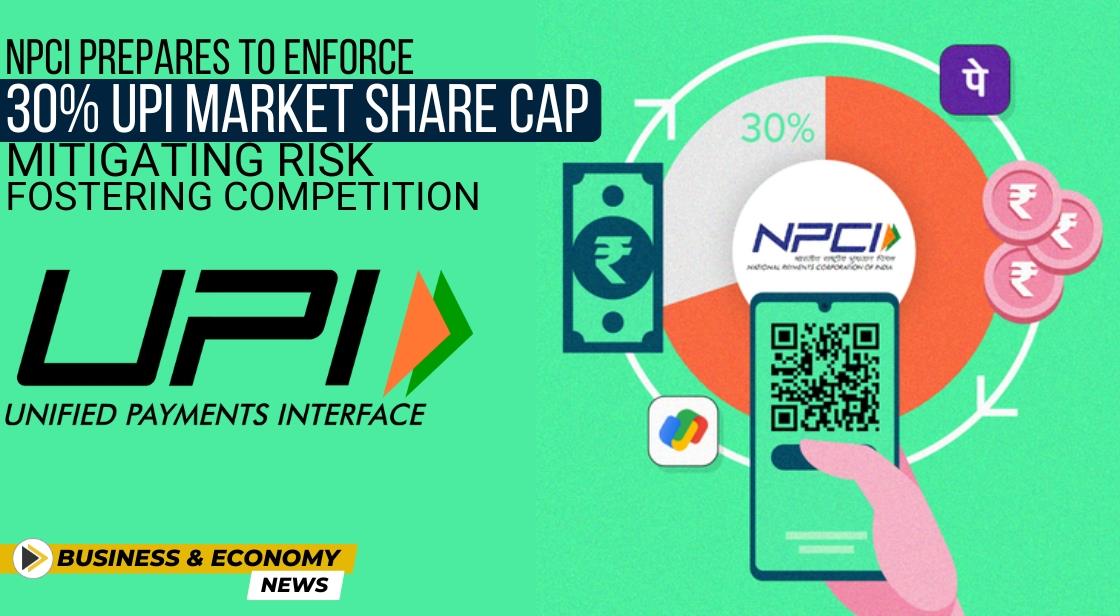NPCI Prepares to Enforce 30% UPI Market Share Cap: Mitigating Risk, Fostering Competition

News Synopsis
The National Payments Corporation of India (NPCI) has shaken up the digital payments landscape by imposing a 30% market share cap on Unified Payments Interface (UPI) transactions.
This decision, aimed at curbing the dominance of third-party app providers (TPAPs) like Google Pay and PhonePe, has left the industry eagerly awaiting implementation details.
Currently, these TPAPs control a whopping 85% of all UPI transactions, raising concerns about concentration risk. To address this, the NPCI is expected to unveil enforcement guidelines in the coming months, well ahead of the December 2024 deadline.
Limiting Dominance, Mitigating Risk
The primary objective behind the 30% cap is to mitigate concentration risk within the UPI ecosystem. Here's how the NPCI might enforce this limit:
-
Curbing New User Acquisition: One potential method involves restricting TPAPs exceeding the 30% threshold from onboarding new users. This approach could be implemented gradually to minimize user inconvenience.
A senior banker emphasized the urgency of addressing concentration risk: "With Google Pay and PhonePe handling such a high volume, the risk of a single point of failure remains high. This could lead to disruptions and disorderly services in case of technical glitches."
Market Dynamics: Balancing Innovation
The dominance of a few major players can stifle innovation within the market. Legal expert Sanjiv Sharma, specializing in competition law, sheds light on this concern:
-
Predatory Pricing and Market Monopolies: Sharma warns that dominant players often resort to "predatory pricing strategies" to gain market share. "Once a monopoly is established, these players can monetize their services to recoup their investments with high returns," he explains.
-
Stifling Innovation: Sharma further highlights how "price wars" can stifle innovation. "This focus on price wars diminishes the space for innovation and makes it difficult for smaller players to offer competitive services," he concludes.
Expansion for Growth: A Broader Landscape
The NPCI acknowledges the immense potential of digital payments and is actively encouraging both existing and new players, including banks and non-banks, to expand their UPI user base. This initiative aims to achieve a more balanced market landscape.
It's important to note that the NPCI will reassess the 30% cap by the end of 2024. This policy, initially announced in November 2022, aims to break the duopoly held by PhonePe and Google Pay and foster a more competitive UPI ecosystem.
Conclusion
NPCI's decision to enforce a 30% cap on UPI market share marks a significant milestone in the evolution of India's digital payments landscape. As the industry braces for regulatory changes, stakeholders must navigate the shifting dynamics with resilience and adaptability. With NPCI expected to provide detailed guidelines in the coming months, the focus now turns to how players will strategize and align their operations to comply with the new regulations while fostering innovation and competition in the digital payments space.
You May Like









